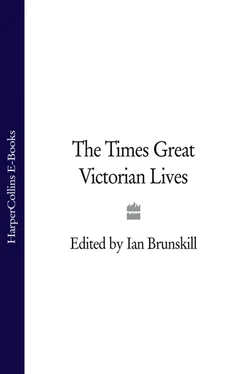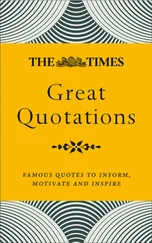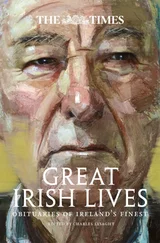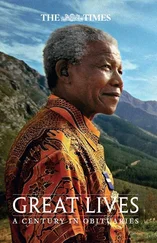We fear that these forecastings have been falsified by the event, and that we must now add the name of David Livingstone to the roll of those who have fallen in the cause of civilization and progress.
It is impossible not to mourn the loss of a missionary so liberal in his views, so large-hearted, so enlightened. By his labours it has come to pass that throughout the protected tribes of Southern Africa Queen Victoria is generally acknowledged as ‘the Queen of the people who love the black man.’ Livingstone had his faults and his failings; but the self-will and obstinacy he possibly at times displayed were very near akin to the qualities which secured his triumphant success, and much allowance must be made for a man for whom his early education had done so little, and who was forced, by circumstances around him, to act with a decision which must have sometimes offended his fellow-workers. Above all, his success depended, from first to last, in an eminent degree upon the great power which he possessed of entering into the feelings, wishes, and desires of the African tribes and engaging their hearty sympathy.
As the best memorial of such a man as Livingstone, we would here place on permanent record his own eloquent words, in which he draws out his idea of the missionary’s work in the spirit, not merely of a Christian, but of a philosopher and statesman:-
‘The sending of the Gospel to the heathen must include much more than is implied in the usual picture of a missionary, which is that of a man going about with a bible under his arm. The promotion of commerce ought to be specially attended to, as this more speedily than anything else demolishes that sense of isolation which is engendered by heathenism, and makes the tribes feel themselves to be mutually dependent on each other. Those laws which still prevent free commercial intercourse among civilized nations appear to me to be nothing but the remains of our own heathenism. But by commerce we may not only put a stop to the slave trade, but introduce the negro family into the body corporate of nations, no one member of which can suffer without the others suffering with it. This in both Eastern and Western Africa would lead to much larger diffusion of the blessings of civilization than efforts exclusively spiritual and educational confined to any one tribe. These should, of course, be carried out at the same time where possible – at all events, at large central and healthy stations; but neither civilization nor Christianity can be promoted alone; in fact, they are inseparable.’
In conclusion, our readers will forgive us for quoting the following testimony to Livingstone’s character from the pen of Mr. E. D. Young, whom we have mentioned above: ‘His extensive travels place him at the head of modern explorers, for no one has dared as yet to penetrate where he has been; no one, through a lengthy series of years, has devoted so much of his life to the work of searching out tribes hitherto unknown and I believe that his equal will rarely, if ever, be found in one particular and essential characteristic of the genuine explorer. He has the most singular faculty of ingratiating himself with natives whithersoever he travels. A frank openhearted generosity combined with a constant jocular way in treating with them carries him through all. True, it is nothing but the most iron bravery which enables a man thus to move among difficulties and dangers with a smile on his face instead of a haggard, careworn, and even a suspicious look. Certain it is, also, that wherever he has passed, the natives are only too anxious to see other Englishmen, and in this way we must crown him “the King of African Pioneers.” ’
This obituary never doubts the nature and enterprise of Livingstone’s missionary work in Africa. Although it portrays the man as one who early on in his life raised himself above his humble origins by education and a sure sense of vocation, it also seems to rejoice in suggesting that there may be a significance in his distinctive Highland ancestry. This is ‘self help’ with an added degree of genetic determining. Livingstone, a meticulous observer and recorder of the topography of the continent on which he laboured, is honoured as a pioneer explorer of territory unknown to Europeans and as one who earned the respect of the Africans amongst whom he worked. After his death on 1 May 1873 from dysentery in what is now Zambia, his body, accompanied as far as Zanzibar by his two most faithful servants, was brought back to Britain for burial in Westminster Abbey. His posthumous reputation was fostered by Henry Morton Stanley.
JOHN STUART MILL
Philosopher and political theorist: ‘the most candid of controversialists.’
8 MAY 1873
LIKE MANY OF his most distinguished contemporaries – like Charles Buller, Macaulay, Buckle, Dickens, Thackeray, George Cornewall Lewis, Sydney Herbert, Lytton – John Stuart Mill has died when many years of thought and action might still have been confidently anticipated for him by his friends. He was born in 1806, and may be cited as one of the strongest confirmations of their theory by those who maintain the hereditary nature of genius or capacity; for he was the son of a man eminently endowed with the same qualities of mind by which he himself rose to be one of the most remarkable writers and thinkers of his generation. James Mill, the father, popularly known as the historian of British India, was the author of a great variety of essays on morals, government, and philosophy; among others of an essay on Education, in which he takes for granted, as an indisputable fact, ‘that the early sequences to which we are accustomed form those primary habits, and that the primary habits are the fundamental character of the man. The consequence is most important, for it follows that as soon as the infant, or rather the embryo begins to feel, the character begins to be formed, and that the habits which are then contracted are the most pervading and operative of all.’
The ‘primary habits’ of the infant or embryo disciple of Bentham were formed with especial reference to this principle. His education was in every sense private and paternal. He was hardly allowed to breathe out of the utilitarian atmosphere, he was swathed in metaphysics, he was dieted on political economy; and, instead of lisping, like Pope, in numbers, he lisped in syllogisms. His father, before going to the India House, had him up at 6 in the morning to dictate the tasks of the day, which included classics and modern languages, besides other branches of knowledge. He was, by all accounts an extraordinary child; and it is within our personal knowledge that he was an extraordinary youth when, in 1824, he took the lead at the London Debating Club in one of the most remarkable collections of ‘spirits of the age’ that ever congregated for intellectual gladiatorship, he being by two or three years the junior of the clique. The rivalry was rather in knowledge and reasoning than in eloquence: mere declamation was discouraged; and subjects of paramount importance were conscientiously thought out. He was already a frequent contributor to the Westminster Review, and a prominent member of the long defunct party, the Philosophic Radicals, whose sayings and doings in its heyday have recently been revived by Mrs. Grote. He must have been a boy in years when a foolish scheme for carrying out the Malthusian principle brought him under the lash of the satirist. In Moore’s Ode to the Goddess Ceres we find:-
‘There are two Mr. Mills, too, whom those who like reading
‘What’s vastly unreadable, call very clever;
‘And whereas Mill senior makes war on good breeding
‘Mill junior makes war on all breeding whatever.’
Coleridge, in his Biographia Literaria, plausibly suggests that literature will be most efficiently pursued by those who are tied down to some regular employment, official or professional, apart from and independent of it. Such employment, he thinks, exercises a steadying and bracing influence upon the mind. ‘Three hours of leisure, unannoyed by any alien anxiety, and looked forward to with delight as a change and recreation, will suffice to realize in literature a larger product of what is truly genial than weeks of compulsion.’ During the entire period of his greatest intellectual efforts John Stuart Mill held an important office under the East India Company, and discharged its duties in a manner to make his retirement a real loss to the public when, in 1868, he declined a seat in the Indian Council offered him by the present Lord Derby. The despatches and other documents drawn up by him would entitle him to a high rank among those it is the fashion to call ‘closet statesmen.’
Читать дальше












